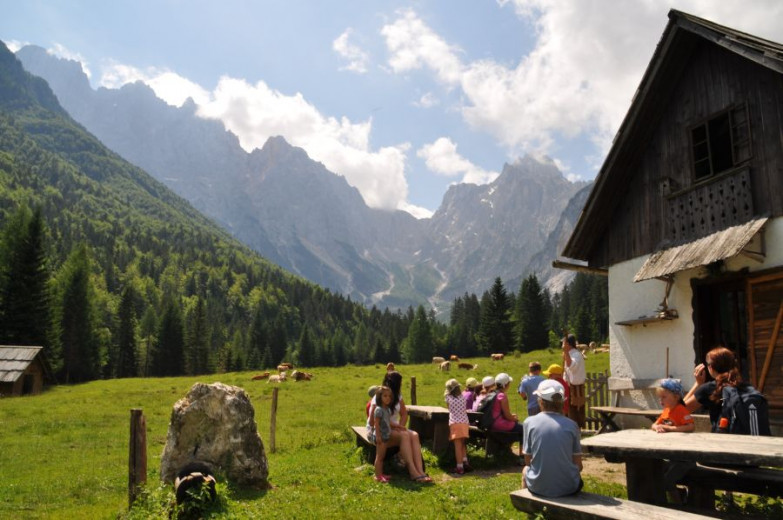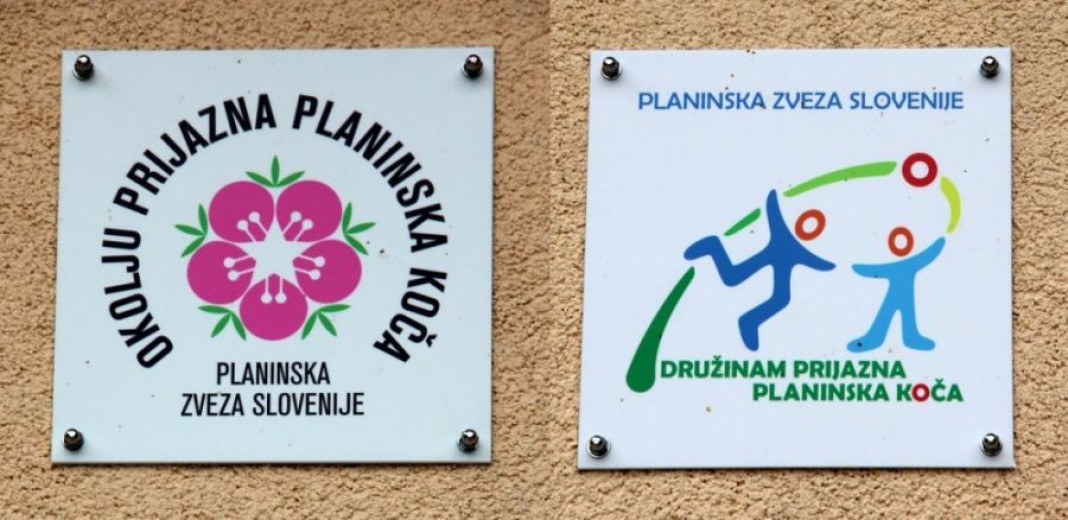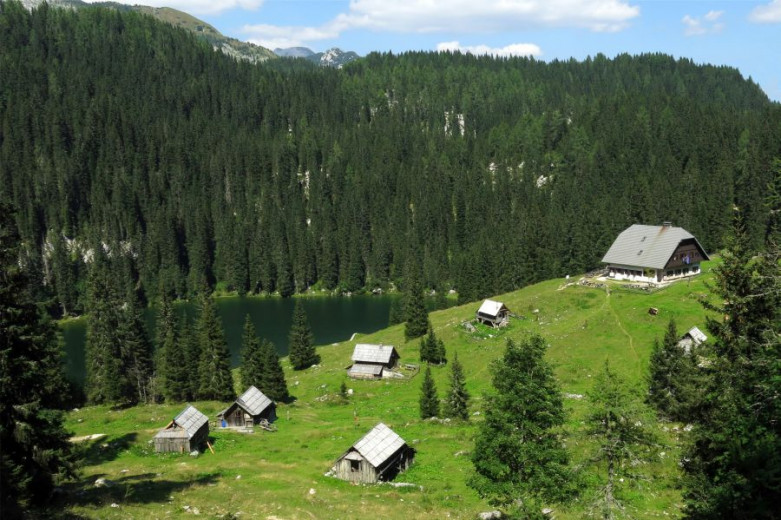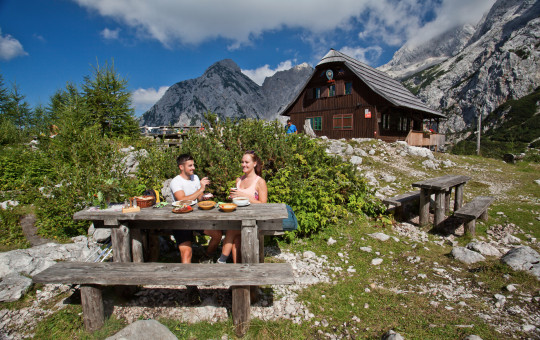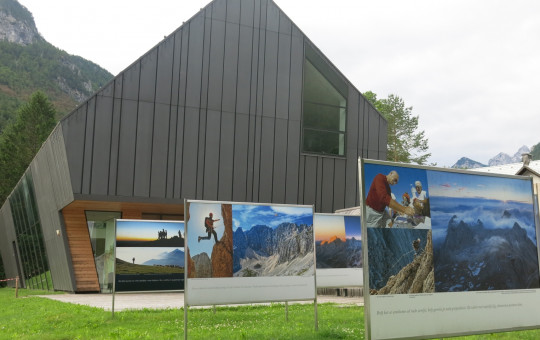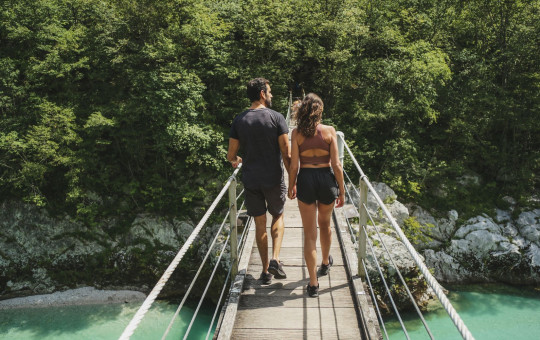Date: 1. November 2019
Time to read: 7 min
In recent years Slovenian tourism has broken records, and visitors are increasingly drawn to our mountains. While welcome, this brings with it an increasing burden on the sensitive mountain environment. The biggest challenge is to find a compromise between comfort and concern for the environment. Certain necessary comforts, such as showers, heated rooms, and a large selection of food, produce a greater quantity of wastewater, more energy consumption and more waste overall.
The Alpine Association of Slovenia is well aware of this, and for a number of years has implemented successful projects to promote the environment-friendly and energy-efficient management of mountain huts, and to raise awareness in the younger generation about the importance of protecting the mountain environment.
Slovenian mountaineering societies manage 180 mountain huts, refuges and bivouacs, of which 163 are fully supplied huts. In order to promote a reduced environmental burden on the mountains and to attract children and parents to huts, the Alpine Association of Slovenia awards certificates for environment (since 2012) and family-friendly mountain huts (since 2013). The certificates are valid for four years, after which the lodge must renew them. The huts see the certificates as an additional form of promotion, and raising the awareness of visitors with regard to environmental issues as part of their mission.
Environment-friendly mountain huts
In order to obtain an environment-friendly mountain lodge certificate, each lodge must provide evidence of a commitment to careful and integrated behaviour towards the sensitive mountain environment.
Since in Slovenia most mountain huts are situated in remote, naturally sensitive areas, and with the aim of increasing visitor numbers due to their higher and better established environmental standards, the Alpine Association of Slovenia introduced a special certificate for huts whose overall operation impacts the environment as little as possible.
This certificate, in the form of a document and sign with the inscription Environment-Friendly Mountain Lodge, is a clear message to visitors that the mountain society, indirectly through the caretaker or manager, is striving to minimise disturbance to the unspoilt natural environment around the lodge and beyond it. To obtain a certificate, the lodge owners must meet demanding criteria which the Alpine Association of Slovenia committee verifies on site. There is particular concern for reducing the impact of visitors in Triglav National Park.
By awarding environment-friendly lodge certificates the Alpine Association of Slovenia is seeking to ensure the environment-friendly and energy-efficient management of huts, since the comfort offered by huts to hikers and Alpinists can burden this extremely sensitive environment with more waste, greater energy consumption and increased transportation.
-
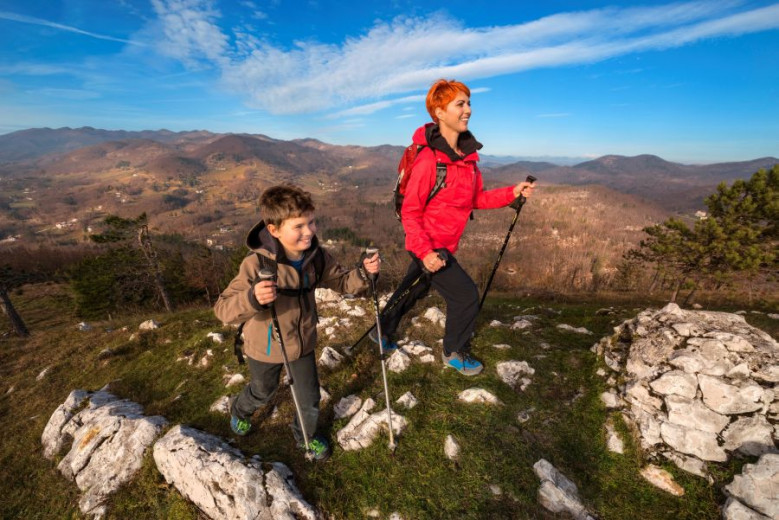 Slovenia offers many opportunities for spending a day in nature with children. Photo:Nea Culpa/www.slovenia.info
Slovenia offers many opportunities for spending a day in nature with children. Photo:Nea Culpa/www.slovenia.info
-
 According to the latest statistics, every year 1.7 million people visit the mountains of Slovenia, where they have 180 huts, refuges, and bivouacs.Photo: Azman Jaka-GettyImages/GuliverFilm&Foto
According to the latest statistics, every year 1.7 million people visit the mountains of Slovenia, where they have 180 huts, refuges, and bivouacs.Photo: Azman Jaka-GettyImages/GuliverFilm&Foto
Family-friendly mountain huts
Following its successful initiative for easing the environmental burden on the mountains, the b Alpine Association of Slovenia began intensively devoting itself to the issue of how to attract families with children to huts.
The certificate and sign saying Family-Friendly Mountain Lodge sends a message to visitors that the staff constantly and to the greatest extent possible work to make staying at the lodge a pleasant and unforgettable experience for the youngest mountaineers and their parents.
The process of obtaining a certificate involves verification of the readiness of the lodge staff to receive families, including those with young children, with all due attention for and understanding of their specific needs. These include the position of the lodge in terms of enabling relatively easy access for families; properly tended mountain trails and car parks at the trailheads; appropriate surroundings at the lodge for the undisturbed activities of children and families; special features in the surroundings of the lodge that are interesting for children; and where possible a special programme of activities for families.
-
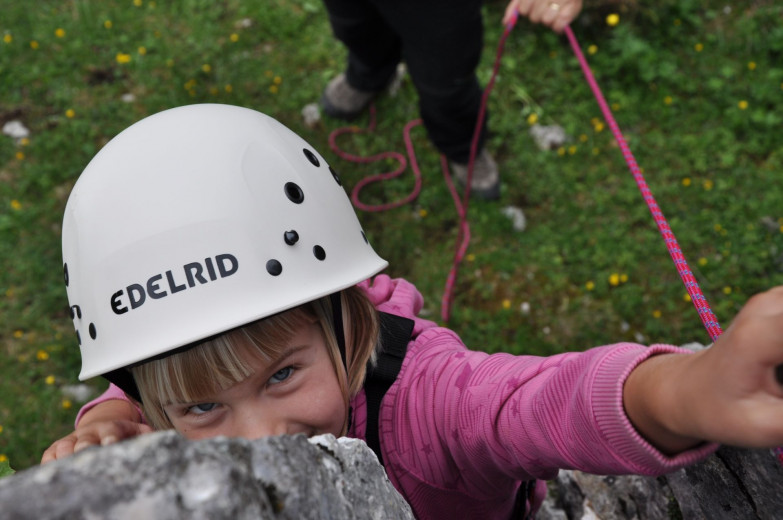 Children love mountains. Photo:Tomaž Rusimović
Children love mountains. Photo:Tomaž Rusimović
-
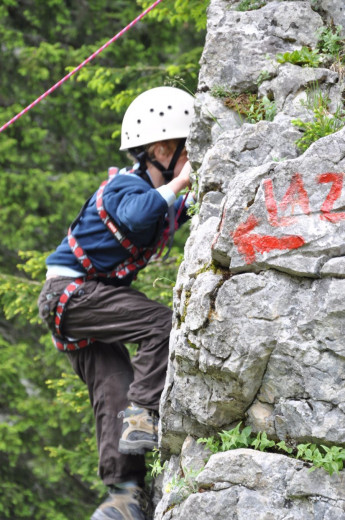 Balvan climbing. Photo: Tomaž Rusimović
Balvan climbing. Photo: Tomaž Rusimović
-
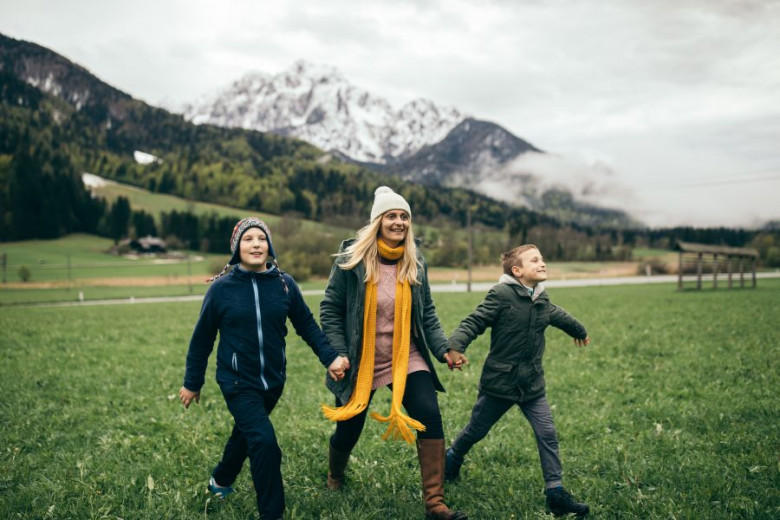 Hiking is a great way to get exercise, experience the outdoors and spend time with your loved ones.Photo: Supersizer_GettyImages/GulliverFilm&Foto
Hiking is a great way to get exercise, experience the outdoors and spend time with your loved ones.Photo: Supersizer_GettyImages/GulliverFilm&Foto
-
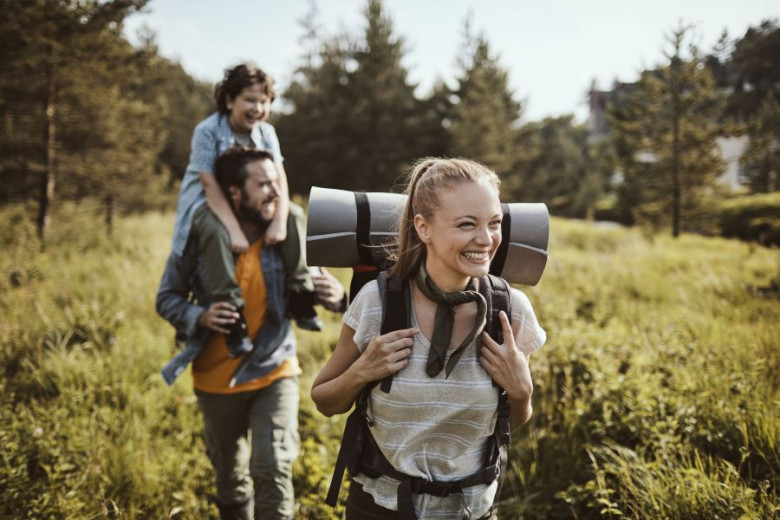 Hiking with their children creates a sort of communal task that everyone has to achieve, and that family bonds are stronger than ever due to this family activity. Photo: Geber_GettyImages/GuliverFilm&Foto
Hiking with their children creates a sort of communal task that everyone has to achieve, and that family bonds are stronger than ever due to this family activity. Photo: Geber_GettyImages/GuliverFilm&Foto
Through the family-friendly certificate the Alpine Association of Slovenia seeks to attract children and their parents to huts, and to ensure that they will have a good experience there. So it is only those huts whose operations are adapted to the specific needs of families that can gain the title of a family-friendly lodge.
This means, among other things, that the fixtures and furnishings of the lodge are child-friendly, such as with high chairs, protective sides around beds, a space with toys, along with a child-friendly menu. In many huts there is also a children’s area with picture books.
Example of good practice in combining the two
The first certificate successfully promotes awareness of the importance of protecting the sensitive mountain environment, while the second attracts families with small children – we could say that taken together they promote a healthy lifestyle and concern for the environment from the earliest age.
One of the huts that has both certificates is Koča na Planini pri Jezeru, which is located in the heart of the Fužine uplands in Triglav National Park.
The LPP Alpine society that manages it understood the importance of cultivating the interest of the younger generation even when environmental issues were not so well promoted elsewhere, and the mountain environment was not visited in such numbers as it is today. Their more than thirty-year tradition of summer mountain camps for preschool children is truly impressive: together with Hans Christian Andersen Kindergarten in Ljubljana they have been organising one-week camps every year since 1988 (the camp was even running during Slovenia’s Independence War), and each year they host three or four groups of six-year-olds. This means that in 31 years around 1,800 children have attended the camps, and the society is rightly very proud of this. Together with mountain guides and preschool teachers, the children go on daily hikes to become familiar with the beauty of the mountains, Alpine flowers and animals, and at the same time they learn how to use mountain equipment and the rules of safe walking in the area. Almost every year the children at the camp are also visited by mountain rescue teams or rescue dog handlers, who present their work, while the little mountaineers get to try their climbing skills on a boulder. All these unforgettable experiences mean that the camp remains a lasting memory for the children, and the mountains are imprinted deep in their hearts. Almost all of them return later with their parents, and many of them become regular or at least occasional mountaineers for the rest of their lives. The first camp participants are now sending their own children to the mountain camps – and thus the cycle continues. This tradition has become a model for other mountain societies, which have started organising similar activities. It is after all true, that nature is the best teacher.

